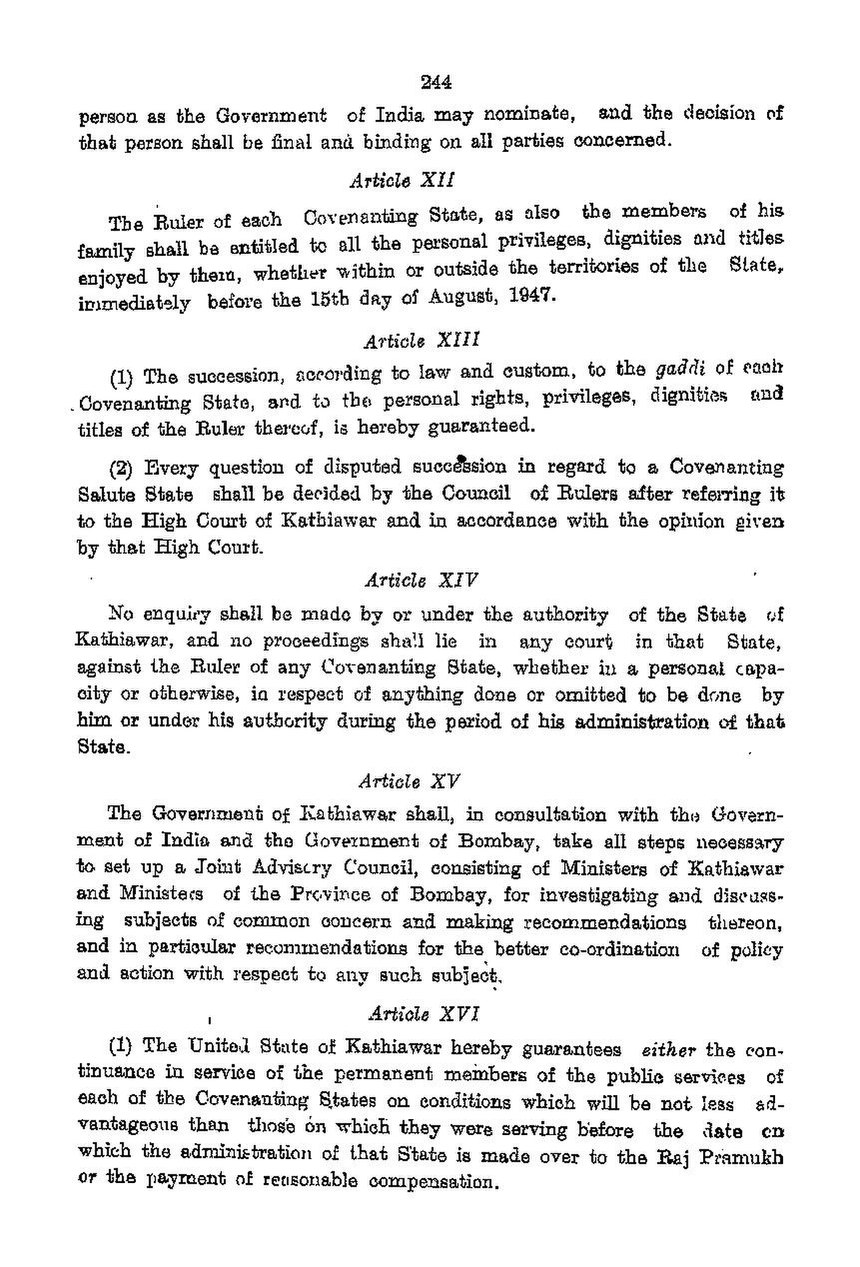244
person as the Government of India may nominate, and the decision of that person shall be final and binding on all parties concerned.
Article XII
The Ruler of each Covenanting State, as also the members of his family shall be entitled to all the personal privileges, dignities and titles enjoyed by them, whether within or outside the territories of the State, immediately before the 15th day of August, 1947.
Article XIII
(1) The succession, according to law and custom, to the gaddi of each Covenanting State, and to the personal rights, privileges, dignities and titles of the Ruler thereof, is hereby guaranteed.
(2) Every question of disputed succession in regard to a Covenanting Salute State shall be decided by the Council of Rulers after referring it to the High Court of Kathiawar and in accordance with the opinion given by that High Court.
Article XIV
No enquiry shall be made by or under the authority of the State of Kathiawar, and no proceedings shall lie in any court in that State, against the Ruler of any Covenanting State, whether in a personal capacity or otherwise, in respect of anything done or omitted to be done by him or under his authority during the period of his administration of that State.
Article XV
The Government of Kathiawar shall, in consultation with the Government of India and the Government of Bombay, take all steps necessary to set up a Joint Advisory Council, consisting of Ministers of Kathiawar and Ministers of the Province of Bombay, for investigating and discussing subjects of common concern and making recommendations thereon, and in particular recommendations for the better co-ordination of policy and action with respect to any such subject.
Article XVI
(1) The United State of Kathiawar hereby guarantees either the continuance in service of the permanent members of the public services of each of the Covenanting States on conditions which will be not less advantageous than those on which they were serving before the date on which the administration of that State is made over to the Raj Pramukh or the payment of reasonable compensation.
